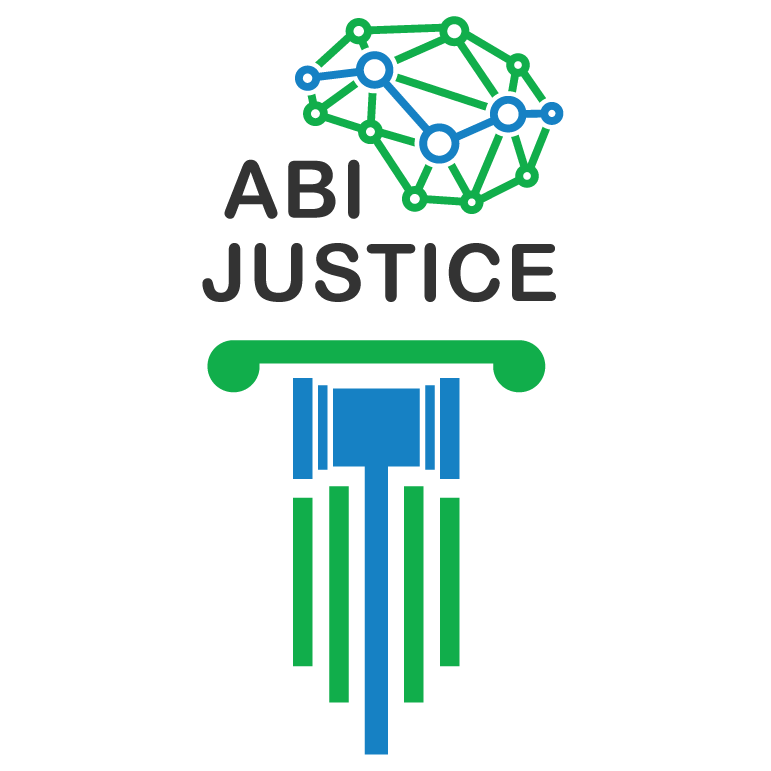
When looking at the legal system, it is important to acknowledge the factors in a person’s environment, which, through their absence or presence, limit functioning and create further barriers.
For an individual with a brain injury these include aspects such as:
- Physical environments that are inaccessible, confusing or difficult to navigate – a courthouse can often be a crowded place with multiple rooms. They generally require a person to have a high level of cognitive functioning in order to navigate the building, understand the rules of conduct, and be able to arrive on time and in the right location. This can cause a late or absent client to appear uncooperative with the courts, or cause increased agitation/anxiety upon arrival. Other challenges can include not knowing who to ask for support or how to access duty council.
- Lack of relevant support or assistive technology (assistive, adaptive, and rehabilitative services) – currently, the court system does not have staff specifically trained in brain trauma and cognitive impairment. As such, there is a lack of understanding and accessible services available to those with cognitive impairments. Accessible supports would incorporate a person’s cognitive and communication needs and could include:
-
-
- Clear signage and directions
- Utilizing communication strategies to make information processing easier
- Having pen/paper and other devices available to write information/directions down
-
- Inconvenient scheduling – Court dates and times often involve arriving at court early and waiting long stretches of time. This can be challenging for someone with a brain injury who can fatigue cognitively throughout the day. This may result in a person agreeing to something they otherwise wouldn’t, due to their level of fatigue and inability to properly process the information.
- Insufficient access to medical examination and procedures – the court may request verification of a condition when considering their accountability in the crime. However, individuals with brain injury often have misplaced medical documentation, have undiagnosed injuries, and access to medical expertise in the health system is limited and can involve long wait periods.
- Lack of access to accessible or convenient transportation – public transportation may be unavailable or at inconvenient locations. This leaves clients who are often living on a limited income paying for taxis or walking long distances in order to attend court. This can result in a client missing court and being seen as uncooperative or in violation of bail conditions. In addition, accessible transit services are often unreliable, involve long wait times and require advance booking.
- Economic Barriers: Persons with brain injuries experience a lack of economic resources that can directly impact one’s access to justice in numerous ways. For example it can affect one’s ability to engage and pay for quality legal counsel; to engage in litigation, which can be expensive and lengthy; or to otherwise seek remedies for alleged violations of rights.
- No leadership or Accountability to address issues related to people living with disabilities/brain injuries: Those living with brain injuries are treated the same as those without a brain injury within the legal system. People living with brain injuries are expected to remember court dates, fill out information and find their own legal aids which can be overwhelming and stressful. They are expected to respond in the same way as other community members, but a cognitive impairment can greatly impact their ability to do so. If a person forgets their court date due to their brain injury, a bench warrant is put out for them, which only serves to make the matter worse. Many policies and guidelines work against these individuals and do not accommodate them.
- Communication barriers: Due to the lack of knowledge on people living with brain injuries, communication barriers can arise. These barriers include writing, reading, hearing, speaking, and/or understanding the language used within the legal system. Persons with brain injuries often have impaired attention, concentration, and memory. They may take a longer period to understand and process certain information. Court can be very overwhelming and can be hard to follow along with, even for persons without these deficits. Court processes move at a fast-paced speed and each aspect is not explained in detail, leaving those with cognitive impairments at a significant disadvantage.
- Attitudinal barriers: These barriers consist of stereotyping, prejudice, stigma, and discrimination. Court staff and others who are uneducated on this topic and can contribute to this stigma. This can make a person with a brain injury shy away from receiving any legal help as they fear being judged and treated in an unfair manner. There is not enough awareness on people living with brain injuries which is harmful to this population.
